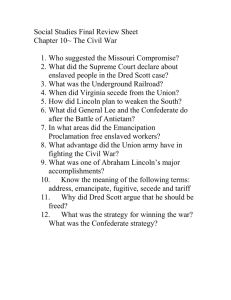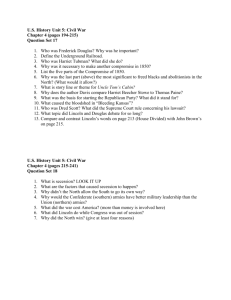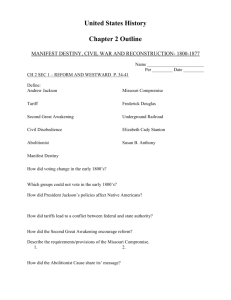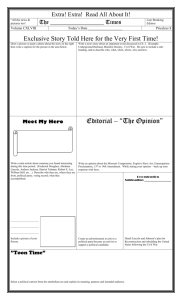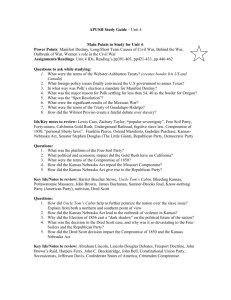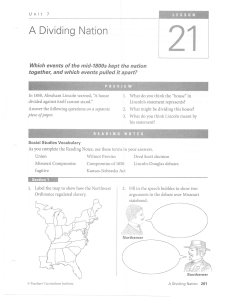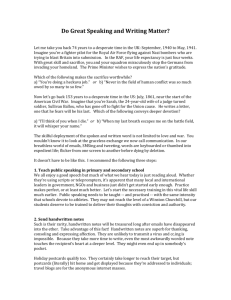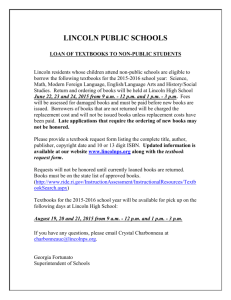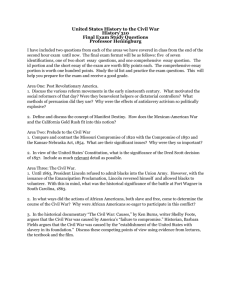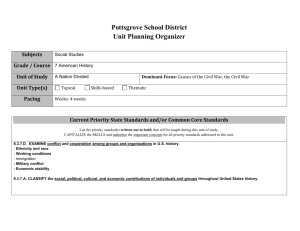google 1850
advertisement
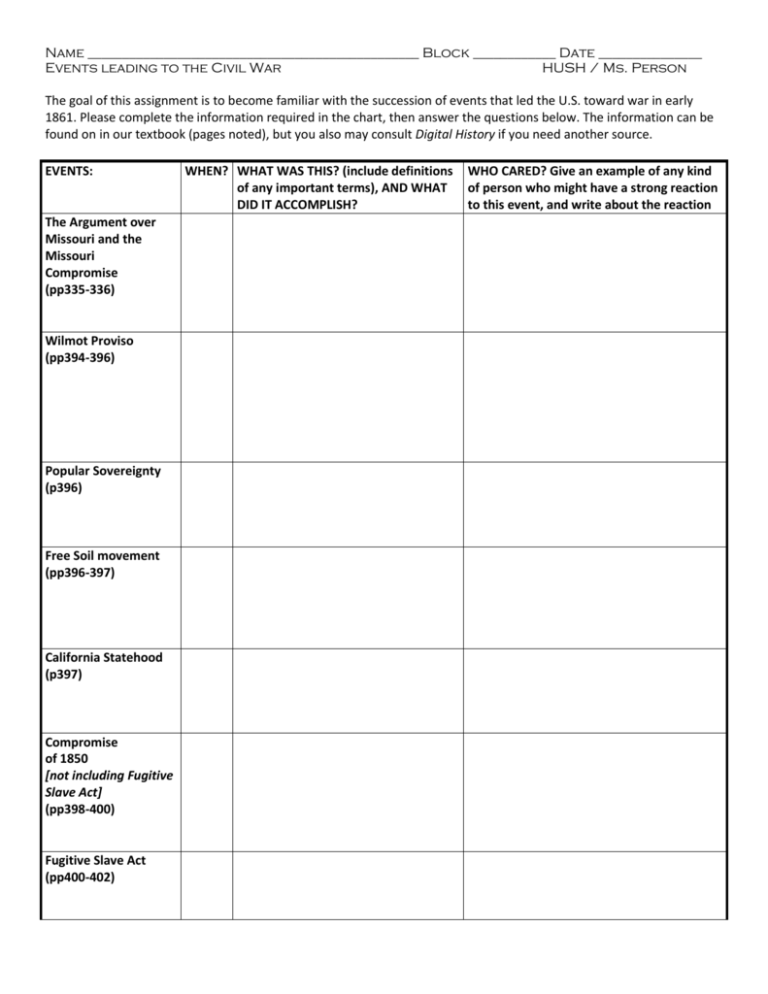
Name ________________________________________________ Block ____________ Date _______________ Events leading to the Civil War HUSH / Ms. Person The goal of this assignment is to become familiar with the succession of events that led the U.S. toward war in early 1861. Please complete the information required in the chart, then answer the questions below. The information can be found on in our textbook (pages noted), but you also may consult Digital History if you need another source. EVENTS: The Argument over Missouri and the Missouri Compromise (pp335-336) Wilmot Proviso (pp394-396) Popular Sovereignty (p396) Free Soil movement (pp396-397) California Statehood (p397) Compromise of 1850 [not including Fugitive Slave Act] (pp398-400) Fugitive Slave Act (pp400-402) WHEN? WHAT WAS THIS? (include definitions of any important terms), AND WHAT DID IT ACCOMPLISH? WHO CARED? Give an example of any kind of person who might have a strong reaction to this event, and write about the reaction Uncle Tom’s Cabin (p403) Kansas-Nebraska Act (pp410-412) Death of the Whig Party / founding of the Republican Party (pp411-412) Rise and fall of the Know-Nothings (pp414-415) Bleeding Kansas (pp415-416) Dred Scott Decision (pp419-420) John Brown/ Harpers Ferry (pp436-437) Election of Abraham Lincoln (pp442-444) Secession of S. Carolina, then other Conf. states (p446) Reflection questions. Please provide complete answers. A. What two or three items above most provoked or aggravated relations between Northerners and Southerners? Why? B. What do you think of John Brown? Was he an effective abolition activist, a crazed terrorist, or something else? Write a bit about how you perceive him, and his actions, now as well as if you were living in the late 1850s. C. Why was the Dred Scott decision so important? Describe the main arguments of the decision and explain why it was so significant for everyone involved in the abolition debate. D. Read the Lincoln quotation. Source: Abraham Lincoln, speech at Alton, IL, Oct 15, 1858 “You may say… that all of this difficulty in regard to the institution of slavery is the mere agitation of office seekers and ambitious Northern politicians…. But it is true that all of the difficulty and agitation we have in regard to this institution of slavery springs from office-seeking – from the mere ambition of politicians? How many times have we had danger from this question? … Does not this question make a disturbance outside of political circles? Does it not enter into churches and rend them asunder?... Is this not the same mighty, deepseated power that somehow operates on the minds of men, exciting and stirring them up in every avenue of society – in politics, in religion, in literature, in morals, in all manifold relations in life? Is this the work of politicians?” i. Please explain the quotation in your own words. ii. Use the Lincoln quotation as well as rest of your reading to identify and explain two reasons why Americans were no longer able to resolve their political disputes through compromise by the start of the Civil War: E. Why was Lincoln’s election the last straw for states in the “deep” South? Use the document below if it helps:
